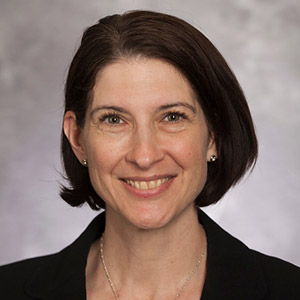The Society for Adolescent Health and Medicine (SAHM) and the North American Society for Pediatric and Adolescent Gynecology (NASPAG) have issued a joint position paper detailing how crisis pregnancy centers (CPCs) fail to consistently follow medical and ethical practice standards, which could lead to negative health outcomes.
Crisis pregnancy centers frequently advertise themselves in misleading ways and often provide unproven or inadequate services. Many also share biased, misleading, and inaccurate health information to prevent people from having an abortion, using modern methods of contraception, and engaging in sex outside of marriage. However, crisis pregnancy centers in the United States are increasingly securing government funding, support, and legal protections.
“Crisis pregnancy centers attempt to prevent use of reproductive healthcare services, particularly abortion and contraception, often without revealing their true intentions,” said Andrea Swartzendruber, an assistant professor of epidemiology and biostatistics at the University of Georgia College of Public Health. “The lack of transparency, use of inaccurate health information, and failure to provide evidence-based services could harm young people and their health.”
Swartzendruber is a leading expert on CPCs and lead author on the new position paper.
SAHM and NASPAG affirm that young people require complete, medically accurate, sexual and reproductive health information and evidence-based clinical services to protect their health and avoid negative outcomes, such as unintended pregnancy and sexually transmitted infections.
“It can be difficult to distinguish between CPCs and healthcare clinics that provide safe, comprehensive care, especially online,” said Maria Trent, president of SAHM. “Health professionals should help young people recognize CPCs and the limitations of CPC services and facilitate access to quality, unbiased sources of information, care, and resources.”
Crisis pregnancy centers are non-profit religious organizations that oppose abortion. Many also oppose contraception. More than 2,500 crisis pregnancy centers are currently operating in the United States. The centers’ primary goal is to encourage people considering abortion to give birth. They offer free pregnancy tests and information about pregnancy options in order to influence people’s pregnancy decisions but frequently fail to disclose their true objectives.
Crisis pregnancy centers may offer limited medical services, such as free ultrasounds to confirm a pregnancy. However, most are not licensed health facilities. The centers often provide inaccurate health information and do not promote informed consent, provide client-centered care, or provide recommended evidence-based services.
Many crisis pregnancy centers also promote misinformation in public schools and youth-serving organizations using an abstinence only until marriage (also known as “sexual risk avoidance”) approach. Such programs provide biased information, are not evidence-based, and are ethically flawed. Along with other major medical and public health organizations, SAHM and NASPAG oppose abstinence only until marriage sexual education and endorse sexuality education that is complete and medically accurate.
Crisis pregnancy centers particularly market their services to young people, people with low incomes, and people of color. In order to appeal to people who may not otherwise seek their services, the centers frequently advertise services they do not actually provide and which hide their true agenda. Some people may seek services at crisis pregnancy centers based on misconceptions, which could delay or prevent receipt of appropriate healthcare.
SAHM and NASPAG support regulation and action to address crisis pregnancy centers’ lack of adherence to medical and ethical practice standards and to prevent potential harm to individual and public health.
“Government-funded health programs have a responsibility to protect and promote health and provide accurate information,” said Dr. Eduardo Lara-Torre, President of NASPAG. “Because CPCs prioritize their own beliefs over the needs and rights of clients and prevailing medical guidelines, their practices and services clearly do not align with a public health approach.”
The paper was published today in the Journal of Adolescent Health and the Journal of Pediatric and Adolescent Gynecology.
Additional coverage via ASPPH Friday Letter, Reuters, Helio, Physician’s Weekly, Rewire News, WKZO AM, and Ms. Magazine.
Posted on October 28, 2019.







